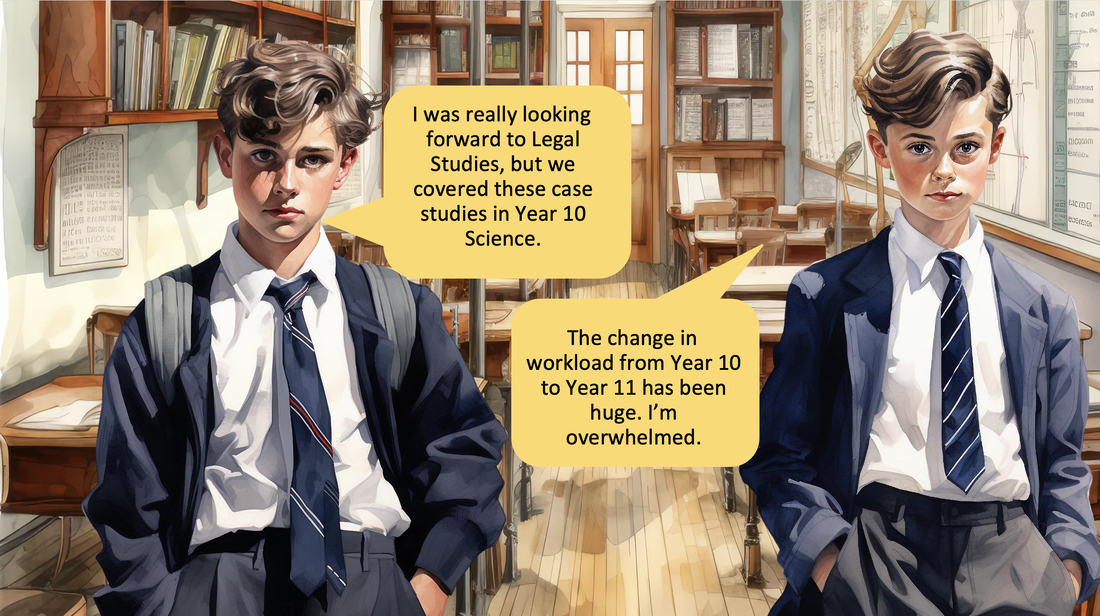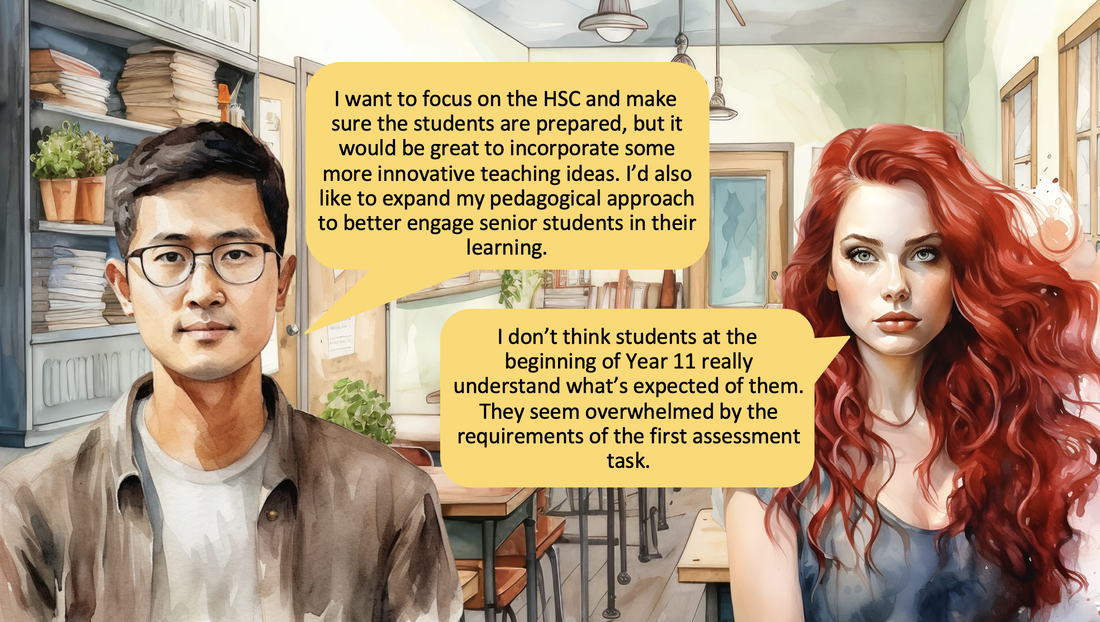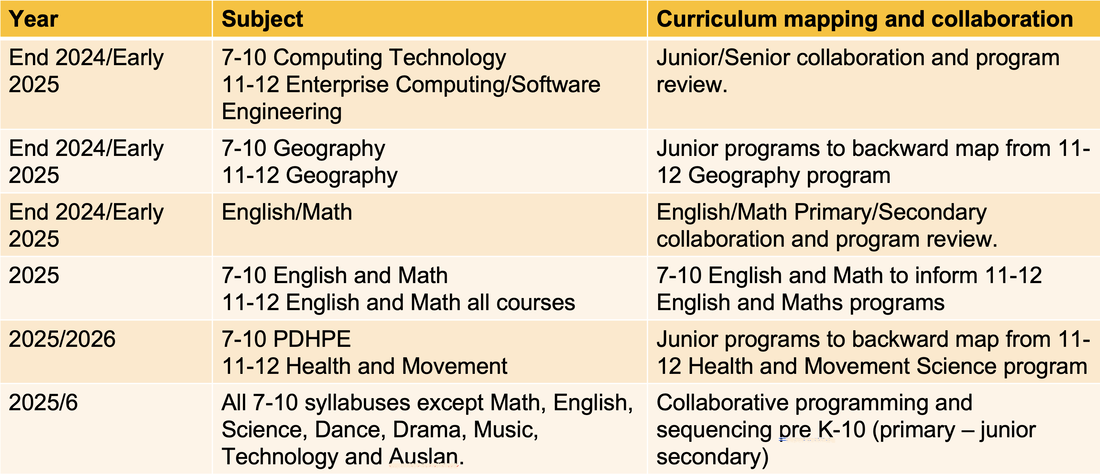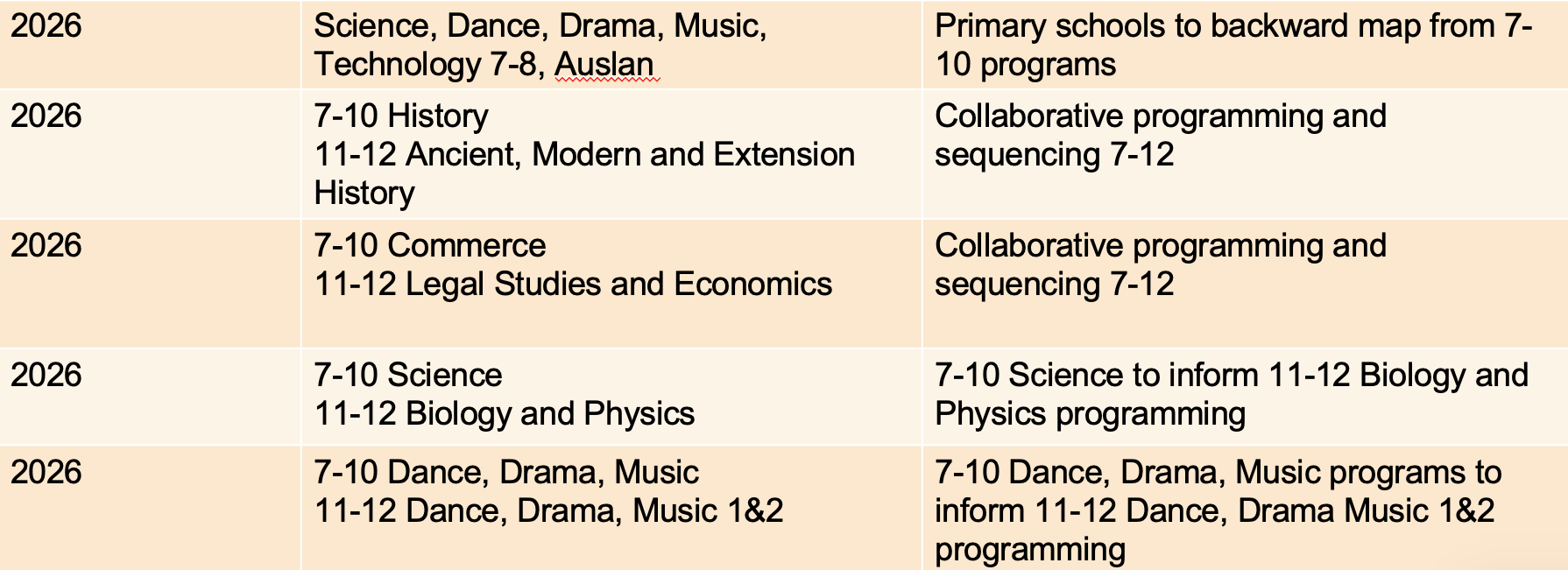|
Most faculties are engaged in some way with curriculum reform. Some have syllabuses currently being implemented, some are familiarising and getting ready for implementation, and some are engaging with drafts and providing feedback. There are a range of professional learning resources available for staff in management positions regarding change management in relation to implementing curriculum reform and managing staff through this period. This post will take a look at this issue from a perspective of managing interpersonal relationships, different management styles, stages in career and levels of motivation. Head Teachers Head Teachers are tasked with the job of motivating and coordinating staff in developing quality teaching and learning programs, incorporating school and system objectives and building staff capacity. Some Head Teachers will be really enthusiastic about the idea of curriculum reform, some may be less so. For most head teachers that have been in the role for more the 6 or 7 years, chances are they have already led curriculum reform before (the last round of syllabus changes began implementation in 2015, with the final subjects still being implemented when the current curriculum reform was announced). Whether you are a Head Teacher or a teacher it is important to get an understanding of the role of the Head Teacher and how their approach can influence this process. Explore the perspectives of the three hypothetical Head Teachers below. None of these is ideal - Head Teacher 1 wants to keep everything as is and just make a few tweaks to existing programs. He probably isn't going to engage all that much and will only encourage the most necessary changes to existing programs. He will validate longer-term teachers in the faculty by not "reinventing the wheel" and recognising hard work of the past, but may miss opportunities to incorporate new and engaging case studies or projects, or innovative practices. Head Teacher 2 is super keen, he's looking closely at the syllabus changes, his new programs are probably going to be good, but he is not bringing his staff on the journey with him, and they probably aren't going to enjoy teaching with the new programs because there is no buy in. As a new Head Teacher, he also hasn't tried to draw on the existing expertise in his faculty, and it appears that he is disregarding past work of the faculty. Head Teacher 3 has a collaborative approach, is engaged in the proces of curriculum reform and has a strong understanding of all the things needed in a quality teaching and learning program. She is wanting to ensure the teaching and learning programs are rigorous and address the needs of the students. However, she may be trying to do too much early on in the process and may burn out her staff. She risks making her staff feel overwhelmed by the scope of the project. As Head Teacher, how do you ensure that you are positive, collaborative, value the opinions your staff, respect past work, encourage rigour, but don't overwhelm the faculty? Teachers and Head Teachers Building Staff Capacity In any faculty, there are staff with a range of expertise and skills. Curriculum Reform provides an excellent opportunity for staff of all stages to gain professional experience that is of benefit for them. Experienced staff may be in a position to mentor other teachers in programming. They may be tempted to go ahead and do a lot of the programming themselves, but they should be looking to expand their leadership, collaboration and mentoring skills in the process. This may involve teaching other staff about school-specific programming conventions, sharing expertise about syllabus interpretation or content knowledge, or guiding staff to existing faculty resources that may be useful. Out of subject teachers may be keen to expand their knowledge and experiences by engaging in programming for new subjects within the faculty - e.g. a Commerce/Business Studies teacher programming for Legal Studies. This helps to create a faculty with a broader skill set, and keeps the staff member engaged and interested because they have the opportunity to try something new. It can also build stronger relationships between staff working together and learning from each other. Beginning teachers may bring new ideas and perspectives to programming, and may have a skillset that the more experienced staff member doesn't have - e.g. technology skills or relevant industry experience. The beginning teacher will benefit from engaging with the more experienced staff members to learn about the process of programming within the school including programming scaffolds, school priorities (e.g. there might be particular approaches to literacy, or a conceptual framework that the school incorporates in their programs) and school resources. What do each of these people bring to the faculty? How can we facilitate them working together? It is important that the staff can work together as a team, and it might be useful to find a way to add some social aspects to the programming sessions so that it feels less like a chore, and to continue to build strong interpersonal relationships in the faculty - afternoon tea, dinner or a a faculty social event afterwards. Self reflection: How do you see yourself? What do you bring to the table? What is your view of collaborative programming? Honestly, I find collaborative planning hard. I know what I like, I know what I think works well, and I just want to sit down and get the job done. However, I also know that people won't want to teach a program that they've had no say in, or mostly represents one person's cultural perspective or interests. "Easy" does not always mean "best" - for you, the faculty or the students. The best programs incorporate a range of different perspectives. Decisions to consider early:
- What resources are you going to draw on? Digital platforms? New text books? Resources from professional associations? Videos and documentaries? Existing resources? - How will programming be divided up in your faculty? How will you ensure that the load is shared but the workload is manageable? - How will the faculty both make use of existing expertise in the faculty and develop the knowledge and skills of more junior staff? - How will you find the time? - Do you have a timeline that you are working to? Does it provide flexibility to take into account busy periods - exams, reports, school events, etc. ? Staff wellbeing A key consideration in this process is going to be looking after staff wellbeing - ensuring faculty relationships are stable and professional, ensuring some people aren't taking on too much of the load, ensuring people feel their opinion is valued, and managing the overall workload of the faculty is manageable. During periods where the faculty has multiple subjects requiring new programs, some meetings or extra initiatives may need to be cut back to accomodate. Keep in mind that keeping the faculty functioning well is more important than a series of perfect documents with no one to teach them.
0 Comments
Just as students transition from primary school to high school, students experience a similar period of transition when moving from junior years to senior years of high school. Often students experience a similar period of anxiety, reassessing organisation structures, and feeling overwhelmed. This transition should be managed in a similar way as the transition from primary to high school and consideration should be given to curriculum sequencing as one measure towards addressing this. Curriculum sequencing to support students transitioning into senior years can include: - curriculum mapping to determine gaps, overlaps and repetition from junior years to senior years. - ensuring a range of teaching strategies are used with seniors to ensure continued engagement in their subjects. - gradually increasing the complexity of assessment tasks and structures from Year 9 to 11 to more closely resemble Stage 6 tasks. Assessment policies should also reflect this. - continuity and increased complexity of school programs that address student literacy and numeracy skills should be ensured. - personalised learning and support provided for individual students should be re-examined and meetings with parents should occur to ensure that families understand the provisions that are allowed in Stage 6. This process should be centralised within the school, not done by individual subject teachers. 7-10 syllabus implementation timeline:
2024 – English and Maths, Aboriginal, Classical and Modern Languages, Computing Technology implemented 2026 – Science, Dance, Drama, Music, Technology 7-8, Auslan implemented 2027 – PDHPE, Geography, History, Aboriginal Studies, Commerce, Visual Arts, Agricultural Tech, Engineering Tech, Marine and Aquaculture Tech implemented 2028 – Photographic Media, Child Studies, PASS, Visual and Motion Design, Work Education, Geography Elective, History Elective Industrial Tech, Design and Tech, Food Tech, Textiles Tech, Graphics Tech implemented 11-12 syllabus implementation timeline: 2024 – Geography, Enterprise Computing, Software Engineering 2025 – Health and Movement Science 2026 – English Studies/Standard/Advanced/Extension/EAL/D/Life Skills, Mathematics Standard/Advanced/Extension 1/Extension 2/Life Skills 2027 – Biology, Physics, Dance, Drama, Music 1, Music 2, Ancient History, History Extension, Modern History, Economics, Legal Studies, 2028 – Chemistry, Earth and Environmental Science, Music Extension, Visual Arts, Aboriginal Studies, Business Studies, Society and Culture, Agriculture, Engineering Studies, Industrial Technology, Textiles and Design This post is only focused on subjects due for implementation up until 2028. Other syllabuses are scheduled for 2029 and some have timelines yet to be announced, but these haven't been included due to the possibility of changes to the schedule given that it is a considerable time away. Programming and sequencing considerations for 7-12 English/Maths The 7-10 English and Maths syllabuses are being implemented in 2024, while the 11-12 syllabuses for English and Maths (all levels are planned for implementation in 2026. As the junior teaching and learning programs will be written and implemented first, 7-10 English and Maths should inform Senior English and Maths programs. 7-10 Science and Stage 6 Biology, Physics, Chemistry and Earth and Environmental Science The 7-10 Science syllabus is planned for implementation in 2026, while Biology and Physics are due to be implemented in 2027, and Chemistry and Earth and Environmental Studies aren't due until 2028. 7-10 Science programs should inform all senior Science teaching and learning programs. 7-10 Geography and Stage 6 Geography Stage 6 Geography is currently being implemented in 2024, while 7-10 Geography is not due for implementation until 2027. In this case the senior teaching and learning programs, assessments, scope and sequences will be completed prior to the junior years. When junior programming begins, teachers will need to refer to the Senior Geography programs and backward map. 7-10 History and Commerce, and Stage 6 Ancient History, History Extension, Modern History, Economics and Legal Studies. All of these subjects are due for implementation in 2027. This is an opportunity for collaborative programming and sequencing for 7-12 to try to avoid replication, appropriate development of understanding of metalanguage, skills and content. Unfortunately, this is a huge workload for HSIE teachers involved in programming, and will require a lot of time and effort in 2026 for staff to be able to get through the programming requirement for each subject, and the risk of having so many subjects being implemented in the same year is that planning may be compromised by workload issues. 7-10 Computing Technology, Stage 6 Enterprise Computing and Software Engineering These subjects are all being implemented in 2024. There is an opportunity for junior and senior collaboration and program review in 2024 and 2025 to work on sequencing. 7-10 PDHPE, Stage 6 Health and Movement Science Stage 6 Health and Movement Science is due for implementation in 2025, while 7-10 PDHPE is due for implementation in 2027. Senior Health and Movement Science should inform planning for 7-10 PDHPE programming. 7-10 Dance, Drama, Music and Stage 6 Dance, Drama, Music 1 and Music 2 7-10 Dance, Drama, Music is being implemented in 2026, while Stage 6 Dance, Drama, Music 1 and Music 2 are being implemented in 2027. The junior teaching and learning programs should inform the senior programs. Simplified timeline for collaboration Below is a possible timeline for collaboration to allow sequencing for primary, junior and senior syllabuses up until the end of 2026. This includes information discussed in another post regarding Curriculum Reform: Curriculum Reform - Primary and Secondary Sequencing. |
Categories
All
Archives
May 2024
|






